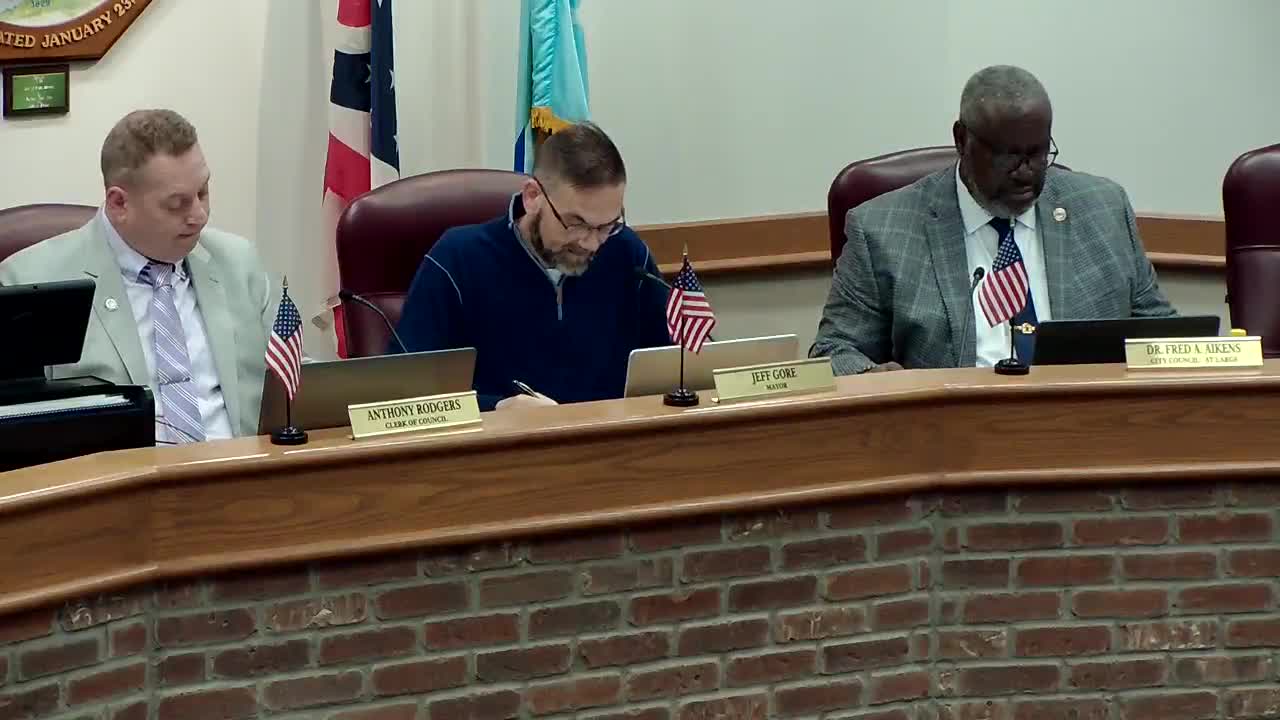Huber Heights adopts ordinance creating New Community Authority; residents press for elected trustees
Get AI-powered insights, summaries, and transcripts
Subscribe
Summary
The Huber Heights City Council voted 8-0 Oct. 13 to adopt an ordinance forming a New Community Authority (NCA) covering the entertainment district and adjacent lands. Speakers pressed the city about trustee appointments, potential community development charges and disclosure to future homeowners.
The Huber Heights City Council voted 8-0 on Oct. 13 to adopt an ordinance declaring the Huber Heights New Community Authority (NCA) to be organized as a body politic and corporate and to define the NCA boundaries and trustee selection method.
The NCA ordinance, presented at the council's first reading, was the subject of extended public comment and council questions before the vote. The ordinance was first presented under agenda item 11D; council members voted to waive the second reading and then adopted the ordinance the same evening by an 8-0 roll call.
The NCA is structured to allow trustees to impose a range of community development charges across the designated district, including the entertainment district; staff listed possible charge types such as food-and-beverage fees, parking charges and ticket revenue surcharges. Aaron, a city staff member answering council questions, said the authority "is being set up though primarily to finance the new music center." He also said the petition set rate caps but not required floors for potential charges, and that the trustees would decide whether to impose charges on particular properties within the overlay.
Cynthia Schwartz, a resident who spoke during the public comment period, urged the council to commit to elections for trustee seats. Quoting a statute, she said appointment-to-election transitions are required by law and warned the ordinance language could be read to permit perpetual appointment by the city and the developer. "With changing this, you set it up to where you and the developer have 0 plans of ever letting go of the control," she said, adding that residents paying community development charges "will have no voice in who is appointed."
Council members pressed staff on details. Aaron said the initial trustee composition would total seven members: four appointed by the council, one appointed by the developer and two appointed by the city manager. He explained that the trustees could decide whether to impose charges on properties in Carriage Trails 2 and other parts of the district and that a decision to impose a charge would be reflected in property declarations disclosed to buyers. "If it is not disclosed to them, in the beginning, that could be a point of invalidation of that charge," he told the council.
Council members and residents also questioned the timing and record of a public hearing required by the NCA petition. Cynthia and other speakers said they were unaware of a hearing held at 2 p.m. on Aug. 13 and asked where minutes could be found. Staff said the separate hearing was properly noticed and open to the public and that it was not part of a council meeting because the NCA petition process uses a different public-notice structure.
On transparency and long-term governance, staff said elections could occur in the future as the resident population in the district grows and appointed seats expire, but that holding formal public elections early in the development process is often impractical because there may be too few qualified residents in the new neighborhood to run for office. Aaron said many NCAs increase board size automatically as the geography or population grows and that if the board expands, the council would appoint additional seats as required by state law.
Council members asked about the financial effect on homeowners in Carriage Trails 2. Staff said the covenants drafted for the development set the community development charge to be at most equal to the effective residential tax rate for a given year, meaning residents would not pay more than an equivalent property tax rate. "They would not pay any more in CT 2 than they would in CT 1. So it's equitable," Aaron said.
The ordinance was adopted after council discussion and public comment. The motion to waive the second reading and the subsequent adoption both passed 8-0.
The council did not set a timetable in the ordinance for converting appointed seats to elected seats; staff said the transition would depend on when a sufficient resident population exists to support elections and that the trustees themselves would govern decisions about imposing charges. The ordinance establishes the NCA and its baseline governance; further actions by the trustees would be required to impose any community development charges or changes to board composition.
For residents who raised concerns about notice and long-term accountability, staff pointed to disclosure requirements and to the public-meeting obligations of the NCA as a body politic. The council's adoption moves the NCA forward; the trustees' future decisions will determine if and how charges are levied or if elections are held.
